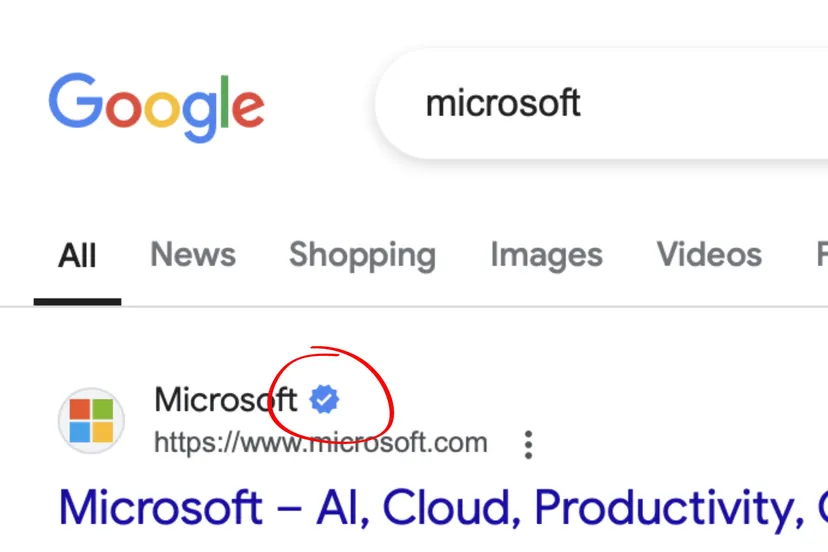News
Google tests new verification checkmarks to combat scam websites

In a recent development, Google has begun experimenting with blue verification checkmarks in its search results, aimed at helping users identify trustworthy businesses and combat online scams. While the feature is still in its testing phase, early reports indicate that users are spotting these checkmarks next to certain company listings in Google search results.
As detailed by The Verge, the checkmarks serve as a visual cue for users, suggesting that the businesses associated with them have met specific verification criteria established by Google. However, the current rollout appears to focus primarily on company-owned sites, leaving open the possibility that this feature could expand to a broader range of websites in the future.
A Google spokesperson confirmed the initiative, stating, “We regularly experiment with features that help shoppers identify trustworthy businesses online, and we are currently running a small experiment showing checkmarks next to certain businesses on Google.” This statement underscores the company’s commitment to enhancing user experience while navigating the complexities of online shopping.
Unlike the verification process utilized by X (formerly Twitter), where users can apply for verification, Google’s checkmarks are reportedly based on proprietary “Google signals.” This means that the criteria for receiving a checkmark remain opaque to users. The spokesperson cautioned that while the checkmark indicates a level of verification, it does not guarantee the reliability of the business or its products, leaving room for skepticism.
The introduction of verification checkmarks is a response to the growing concern over online scams and fraudulent websites, which have become increasingly sophisticated in recent years. By implementing this feature, Google aims to provide users with an additional layer of confidence when exploring online options.
Despite these positive steps, experts suggest that users should remain vigilant and conduct thorough research, especially when making online purchases. The checkmark, while a useful tool, does not replace the need for individual scrutiny and diligence in assessing the credibility of online businesses.
The move to implement verification checkmarks reflects a broader trend in the tech industry toward enhancing transparency and trust in digital interactions. As competition in the search engine landscape continues to intensify, features like these could become critical differentiators for users seeking reliable information.
-

 Domains6 years ago
Domains6 years ago8 best domain flipping platforms
-

 Business6 years ago
Business6 years ago8 Best Digital Marketing Books to Read in 2020
-

 How To's6 years ago
How To's6 years agoHow to register for Amazon Affiliate program
-

 How To's6 years ago
How To's6 years agoHow to submit your website’s sitemap to Google Search Console
-

 Domains5 years ago
Domains5 years agoNew 18 end user domain name sales have taken place
-

 Business6 years ago
Business6 years agoBest Work From Home Business Ideas
-

 How To's6 years ago
How To's6 years ago3 Best Strategies to Increase Your Profits With Google Ads
-

 Domains5 years ago
Domains5 years agoCrypto companies continue their venture to buy domains








